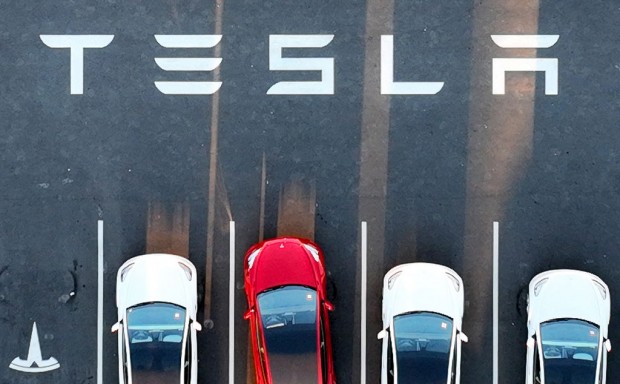Tesla could be penalized more than $8 million by the Korea Fair Trade Commission over findings that it exaggerated the specifications of batteries found in its electric vehicles.
(Photo : JOSH EDELSON/AFP via Getty Images)
Tesla found itself in the middle of yet another controversy, this time in the nation of South Korea. The country's antitrust regulator is considering imposing penalties on the world's most valuable automaker over findings that Tesla exaggerated the specifications of batteries found in its electric vehicles.
The Korea Fair Trade Commission (KFTC) sent a report to Tesla, notifying Elon Musk's company that it had exaggerated the mileage of some of its vehicles, including the highly popular Model 3. A Korean official told Reuters that such an offense violates the Fair Labeling and Advertising Act.
The KFTC official added that the commission plans to hold a general meeting to review and determine the extent to which the carmaker had violated the law and then decide the level of sanctions to be imposed on them. According to insiders, Tesla could receive fines of up to 10 billion won ($8.35 million) since the South Korean regulator is allowed by law to fine up to 2 percent of the carmaker's sales. Tesla earned an estimated 1.1 trillion won ($919 million) in South Korea last year.
KFTC accuses Tesla of false advertisement with its batteries
The KFTC found Tesla to be at fault for advertising a range of 446 kilometers (277 miles) for its Model 3 car without informing South Korean customers that the range of the said vehicle may drop by as much as 40 percent when temperatures fall to below minus 7 degrees Celsius (19.4 degrees Fahrenheit).
Tesla had reportedly labeled the commission's ruling as unfair, claiming it is not right for the KFTC to impose penalties on them when other carmakers also advertise the performance of their batteries based on warm temperatures.
Tesla said that it is only natural that battery performance differs depending on the temperature it is placed in. Analysts backed up Tesla on that point, saying most electric cars could generally experience some loss of driving range in cold temperatures.
Also Read: Cargo Ship Felicity Ace Catches Fire: Nearly 4,000 Porsche, Audi, Bentley, and VW Vehicles on Board
Tesla under fire for refusal to return online deposits
Apart from the battery issue, the KFTC is also determining whether to impose additional penalties on Tesla for not refunding deposits to customers who canceled their online car purchases before the orders for the vehicles were put in place for release.
Tesla requires its customers in South Korea to pay a deposit of 100,000 won ($84) when purchasing its cars online. However, their deposits were not refunded when they decided to cancel their orders for Tesla cars. The KFTC sees this refusal of Tesla to return the deposits as a violation of a customer's right to withdraw purchases.
It has been a rough start to the year for Tesla, with the company issuing a spate of recalls for its vehicles across the globe. The issue of phantom braking is also hurting Tesla's reputation in the United States at the moment, with the U.S. government launching a formal investigation about that problem.
RELATED ARTICLES:
Tesla CEO Elon Musk Accuses SEC of Curtailing His Free Speech; Blasts 'Unrelenting' Investigation
Volkswagen Cuts Production and Night Shifts as Global Chip Shortage Continues To Hit Automakers
See Now: OnePlus 6: How Different Will It Be From OnePlus 5?




























